A Power of Attorney in New Mexico is a legal document or log that gives a representative the power to act on behalf of a principal.
The principal is the person who gives the powers, while the agent or representative is the one upon whom the power is vested.
It is filled out to appoint a reliable person to represent the principal’s financial, medical, or business affairs. This document ensures that their interests will be well taken care of if anything happens to the principal.
There are different forms in New Mexico, and some become effective when the principal becomes incapacitated, while others are when the principal is unavoidably absent. Be careful to use the appropriate POA document. A principal should appoint a spouse, close family member, or dependable friend as the agent to ensure reliability.
Free Form
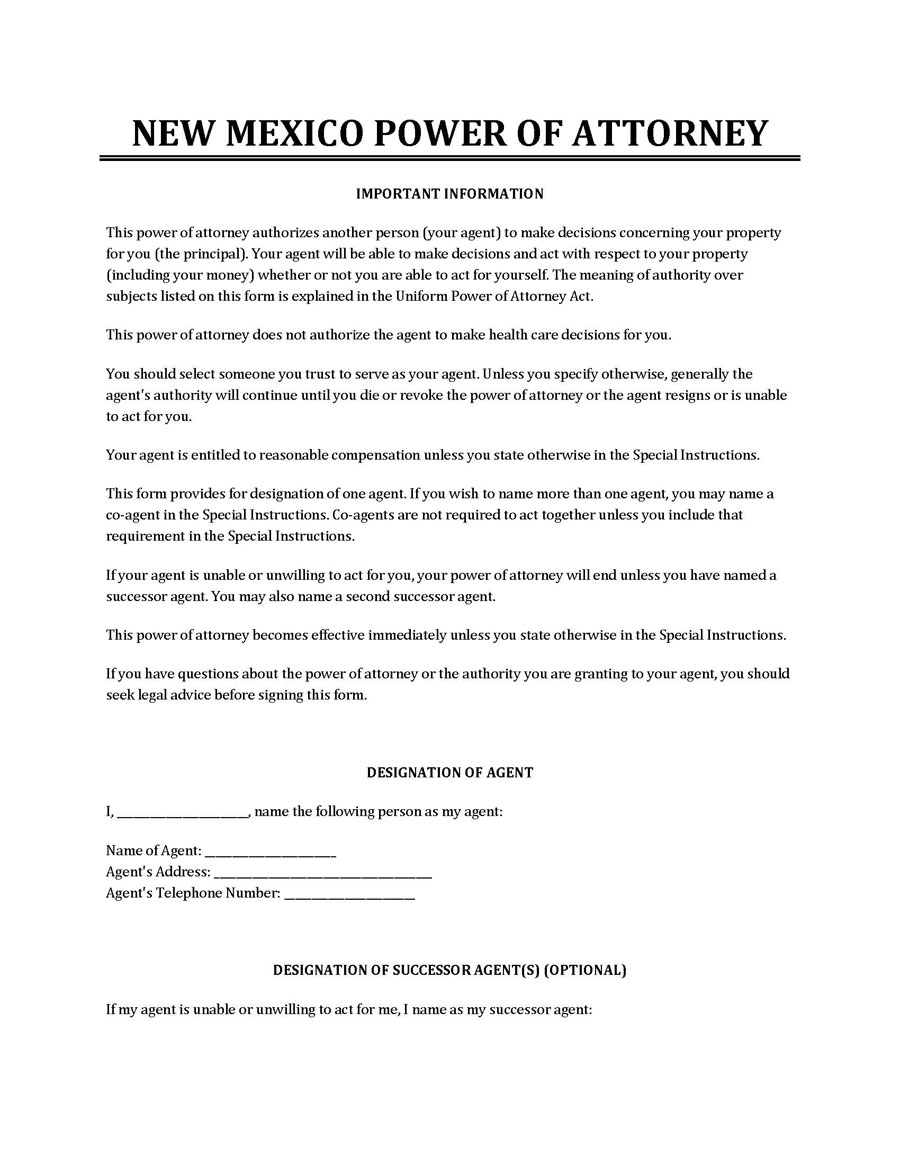
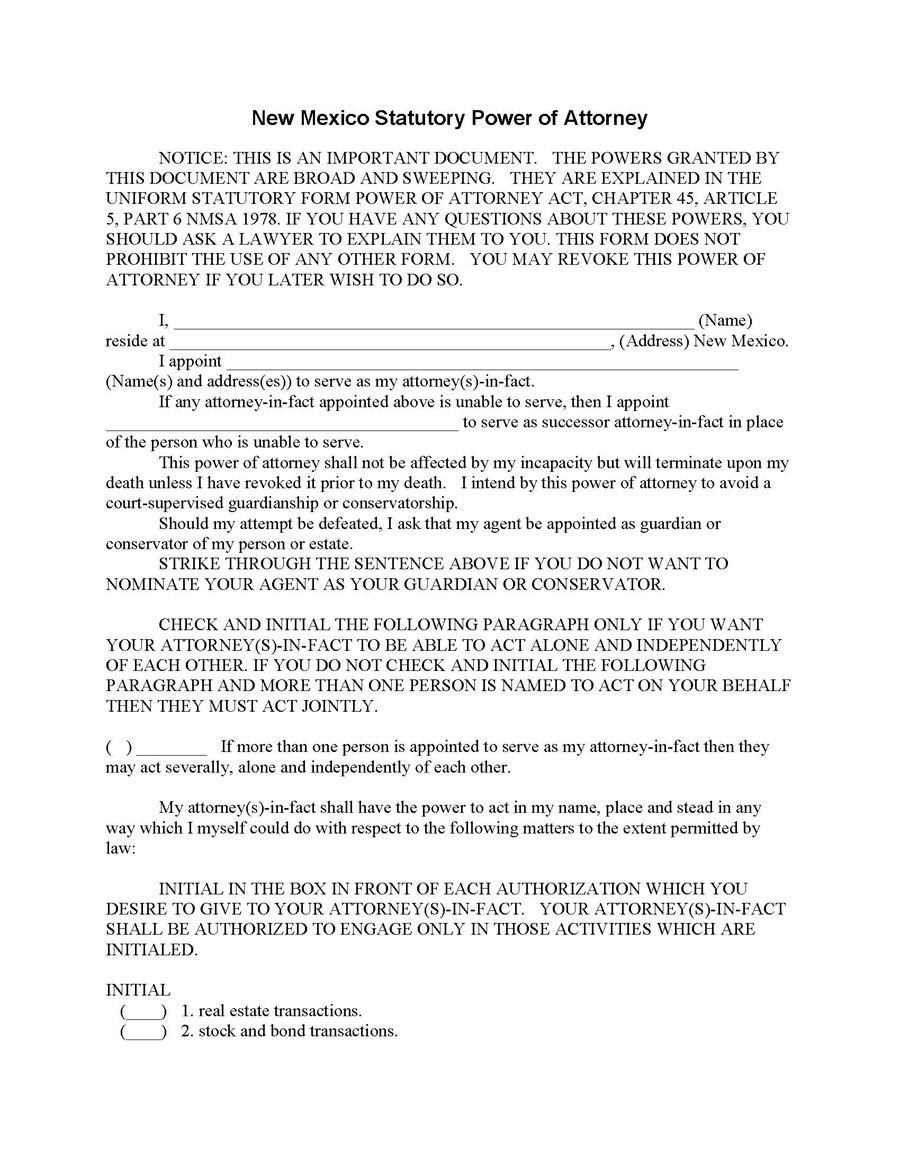
Types of New Mexico POA Forms
There are many types of POA forms available in new Mexico for different situations. It is essential to understand the differences between them to choose the one that works best for you.
The types include:
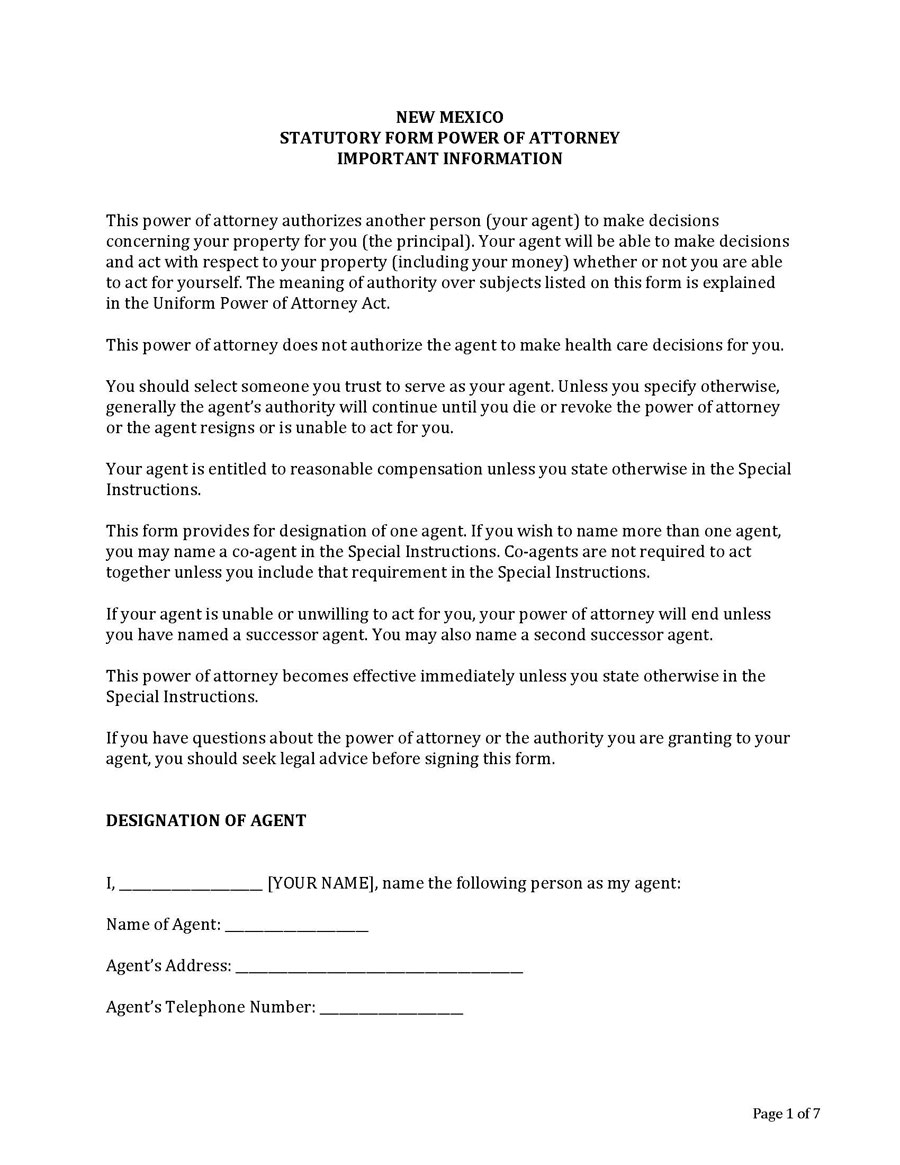
Durable (Statutory) Power of Attorney Form
Download: Microsoft Word (.docx)
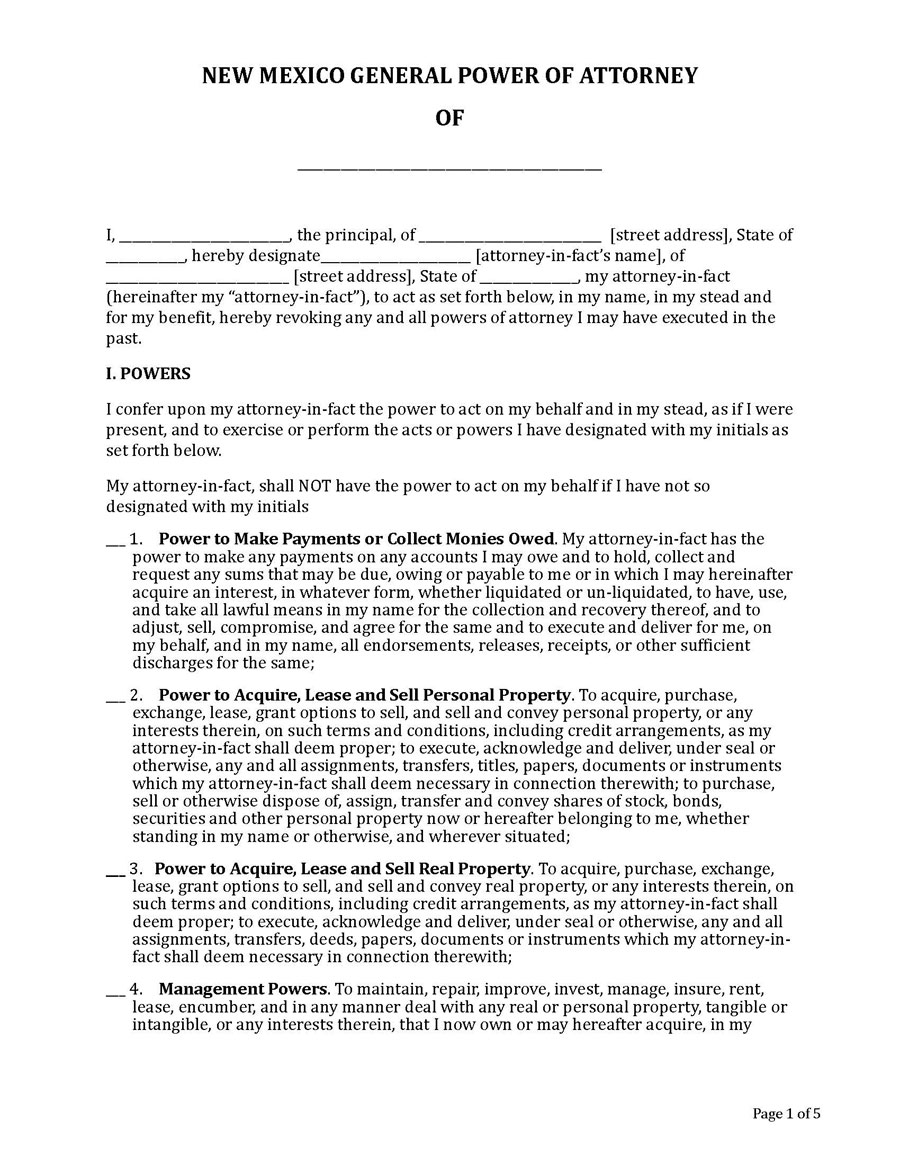
General (Financial) Power of Attorney Form
Download: Microsoft Word (.docx)
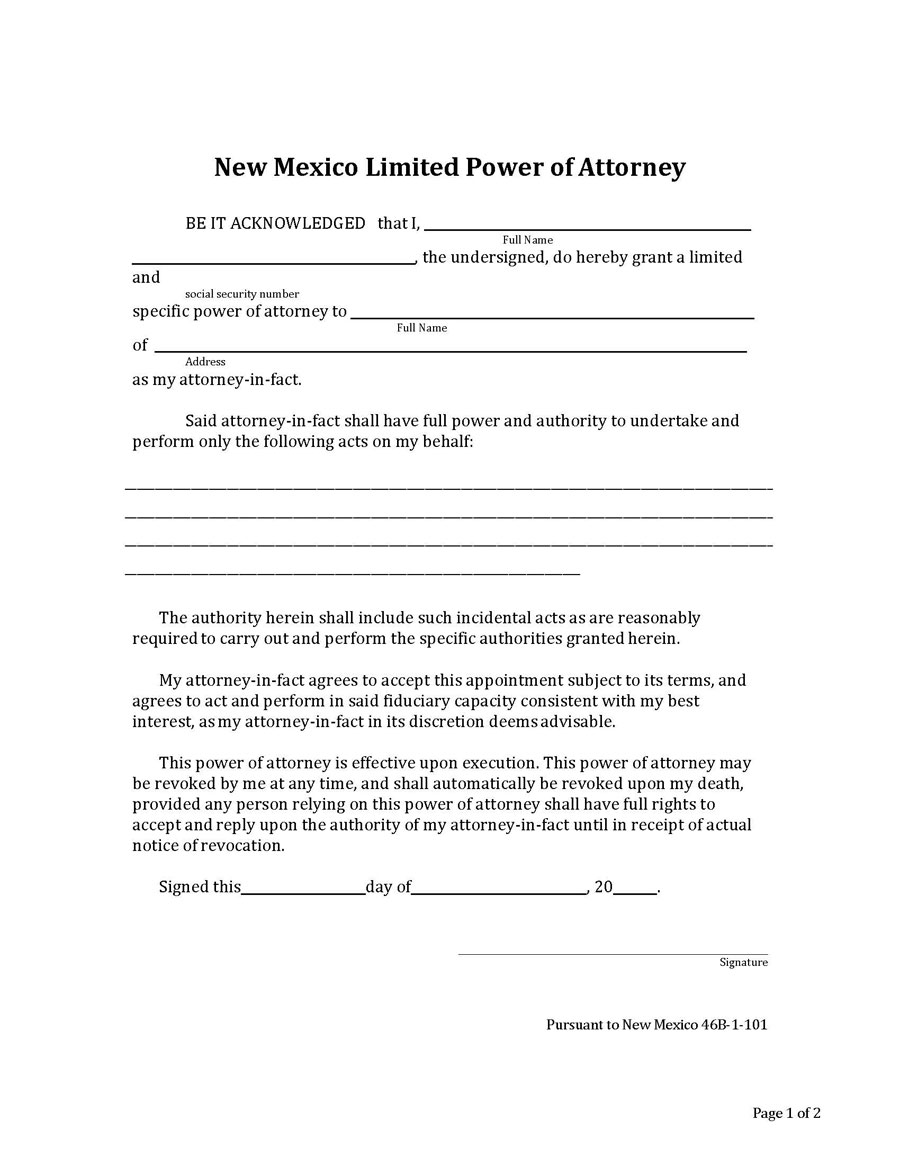
Limited Power of Attorney Form
Download: Microsoft Word (.docx)
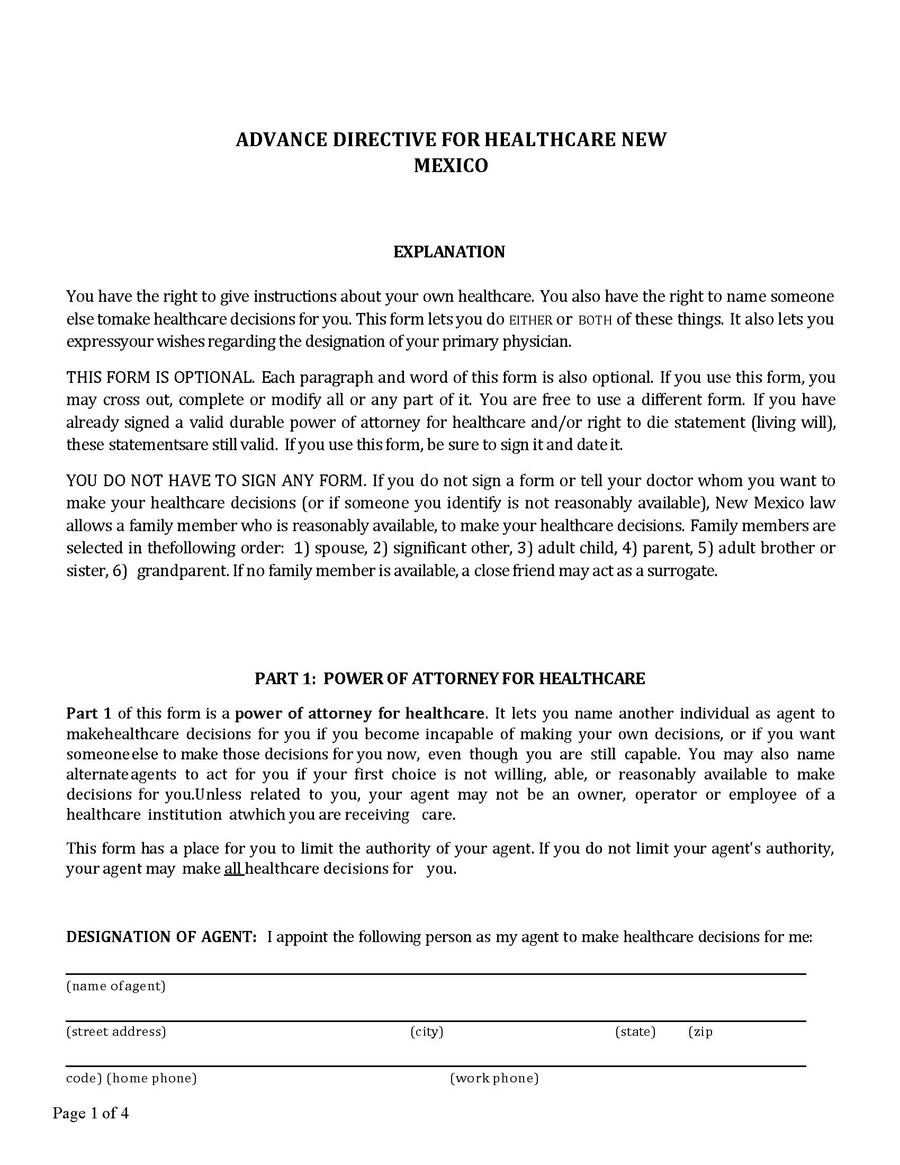
Medical Power of Attorney Form
Download: Microsoft Word (.docx)
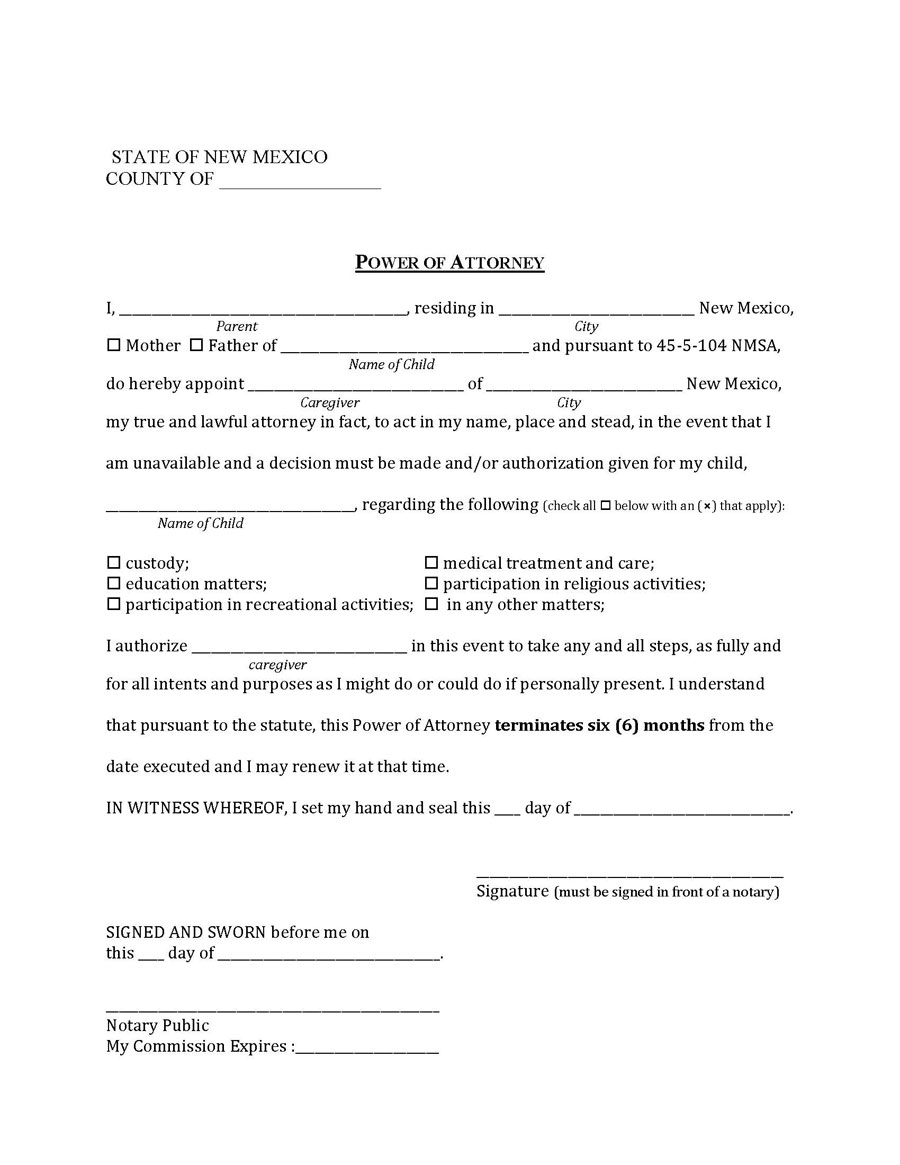
Minor (Child) Power of Attorney Form
Download: Microsoft Word (.docx)
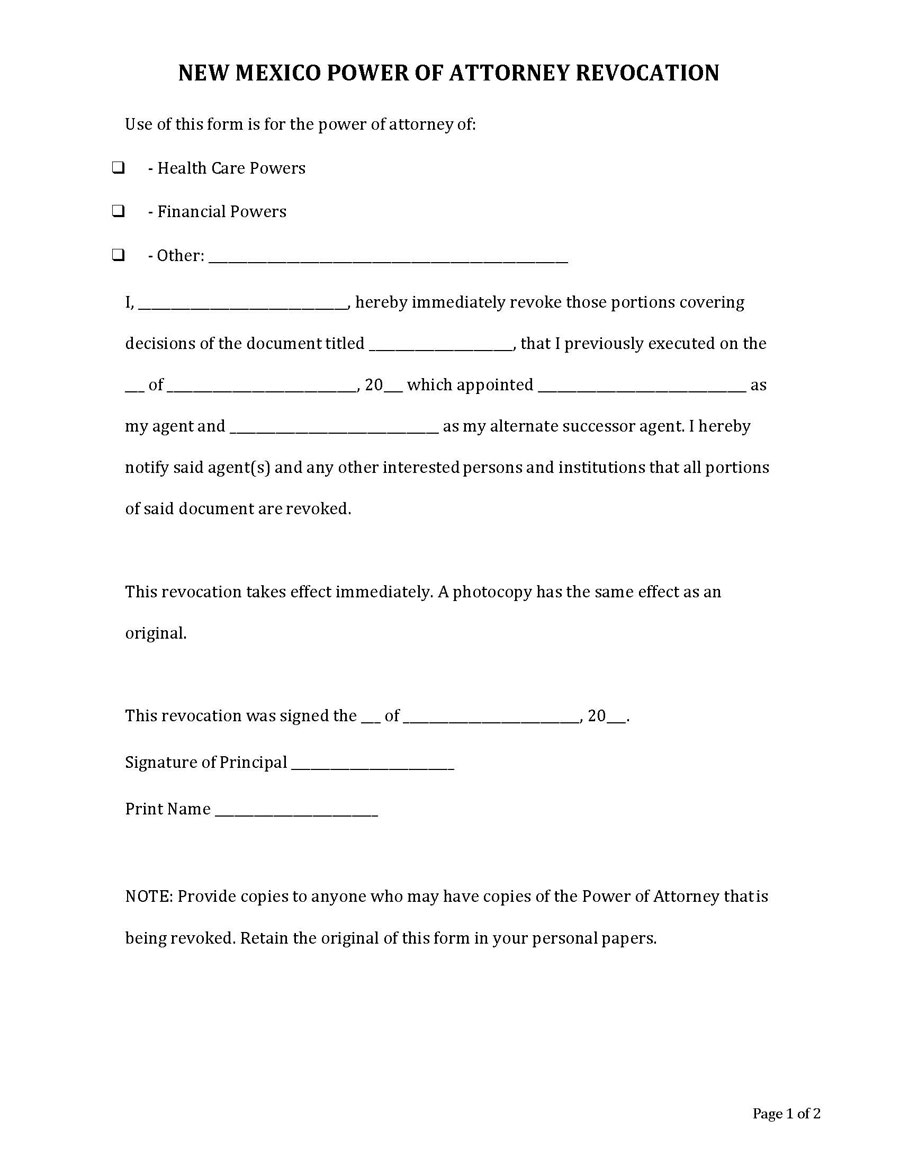
Revocation of Power of Attorney Form
Download: Microsoft Word (.docx)
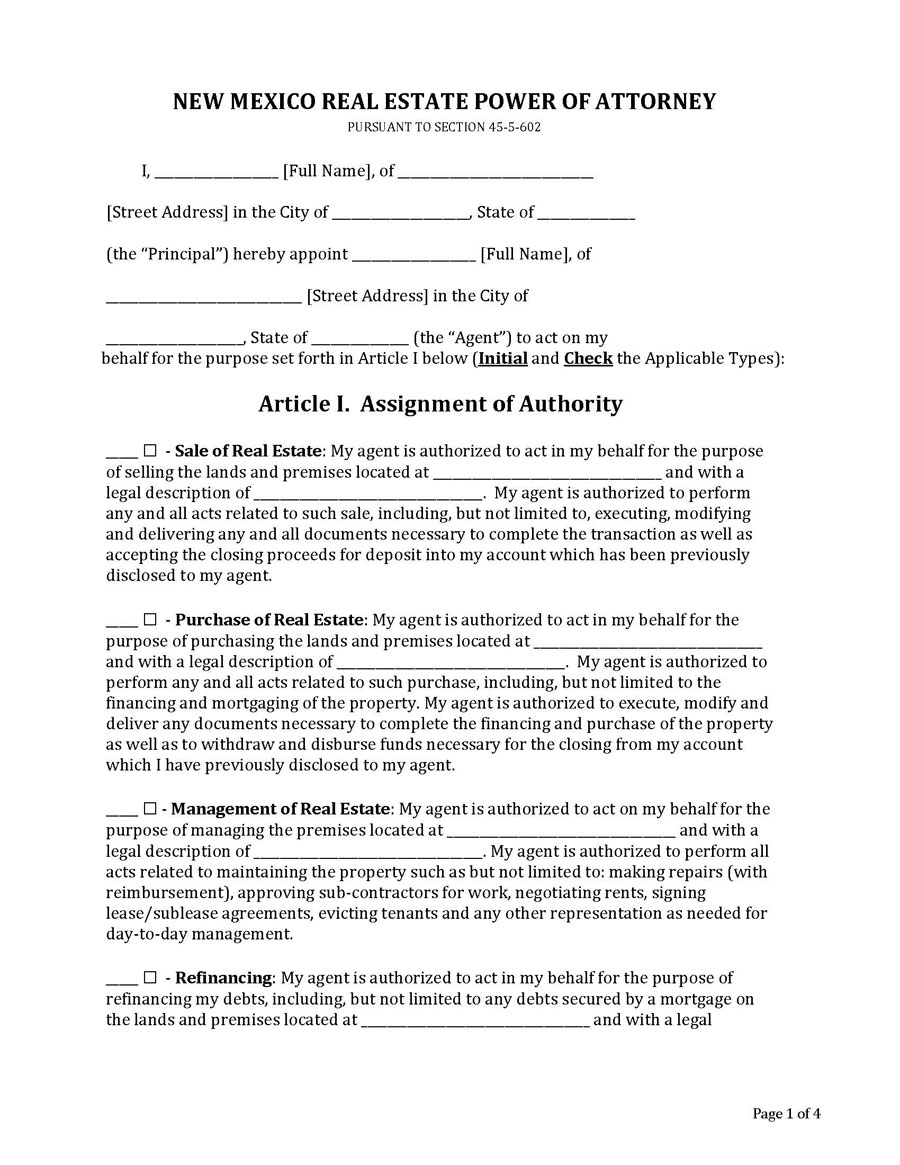
Real Estate Power of Attorney Form
Download: Microsoft Word (.docx)
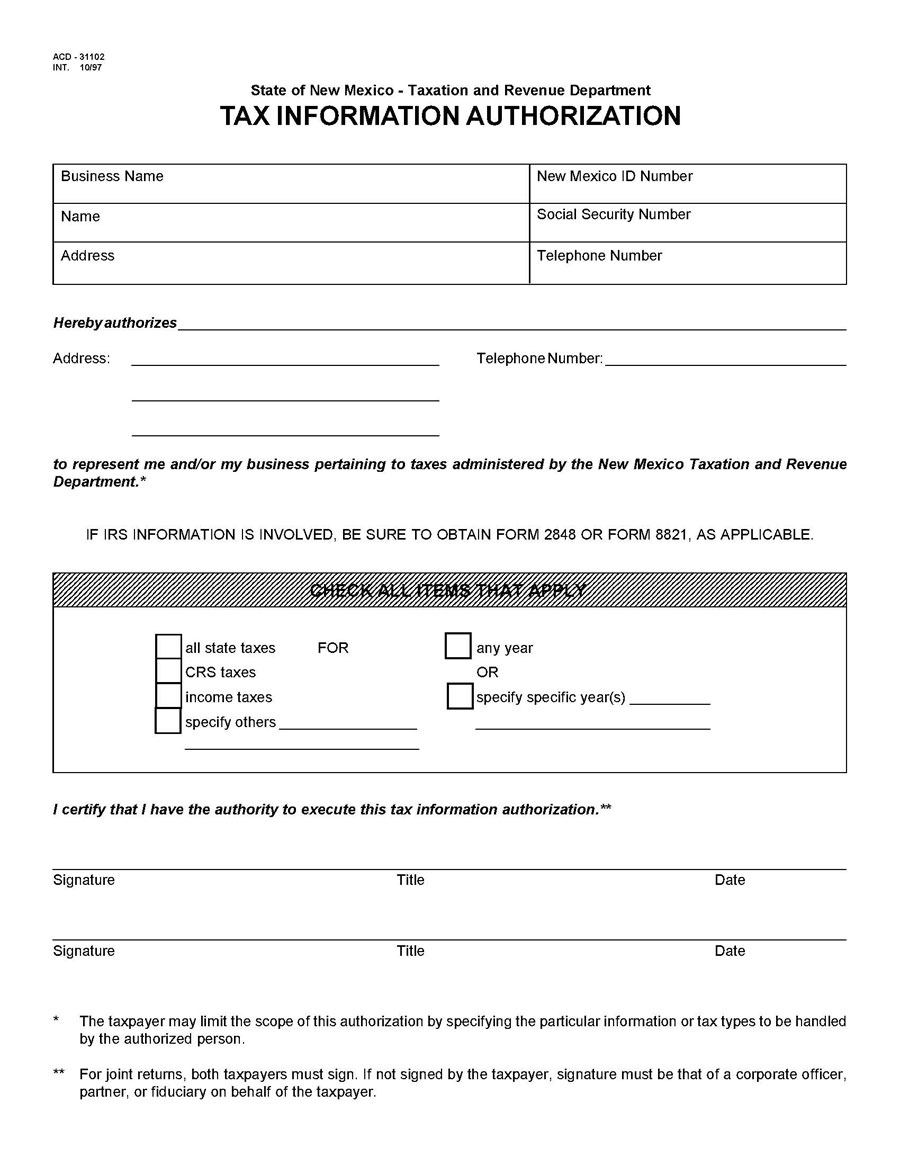
Tax Power of Attorney Form
Download: Microsoft Word (.docx)
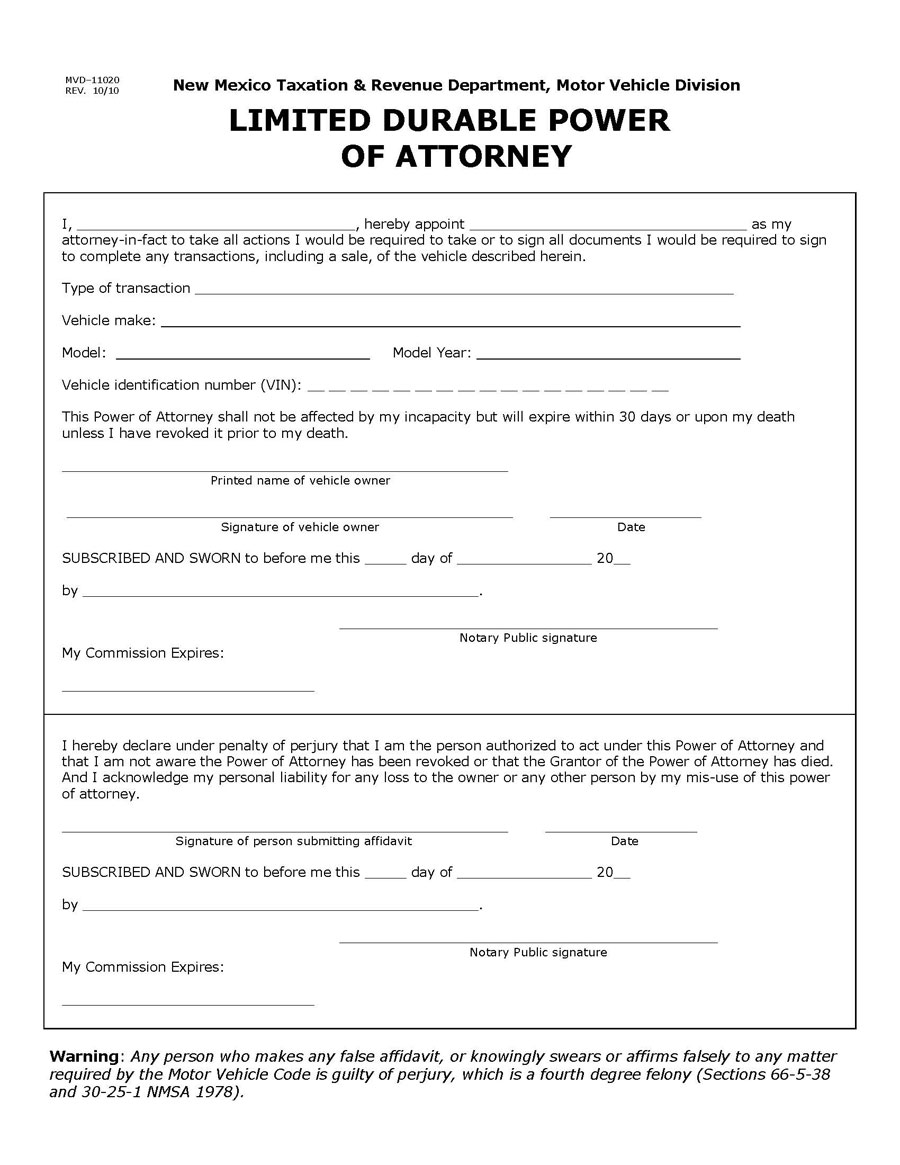
Vehicle Power of Attorney Form
Download: Microsoft Word (.docx)
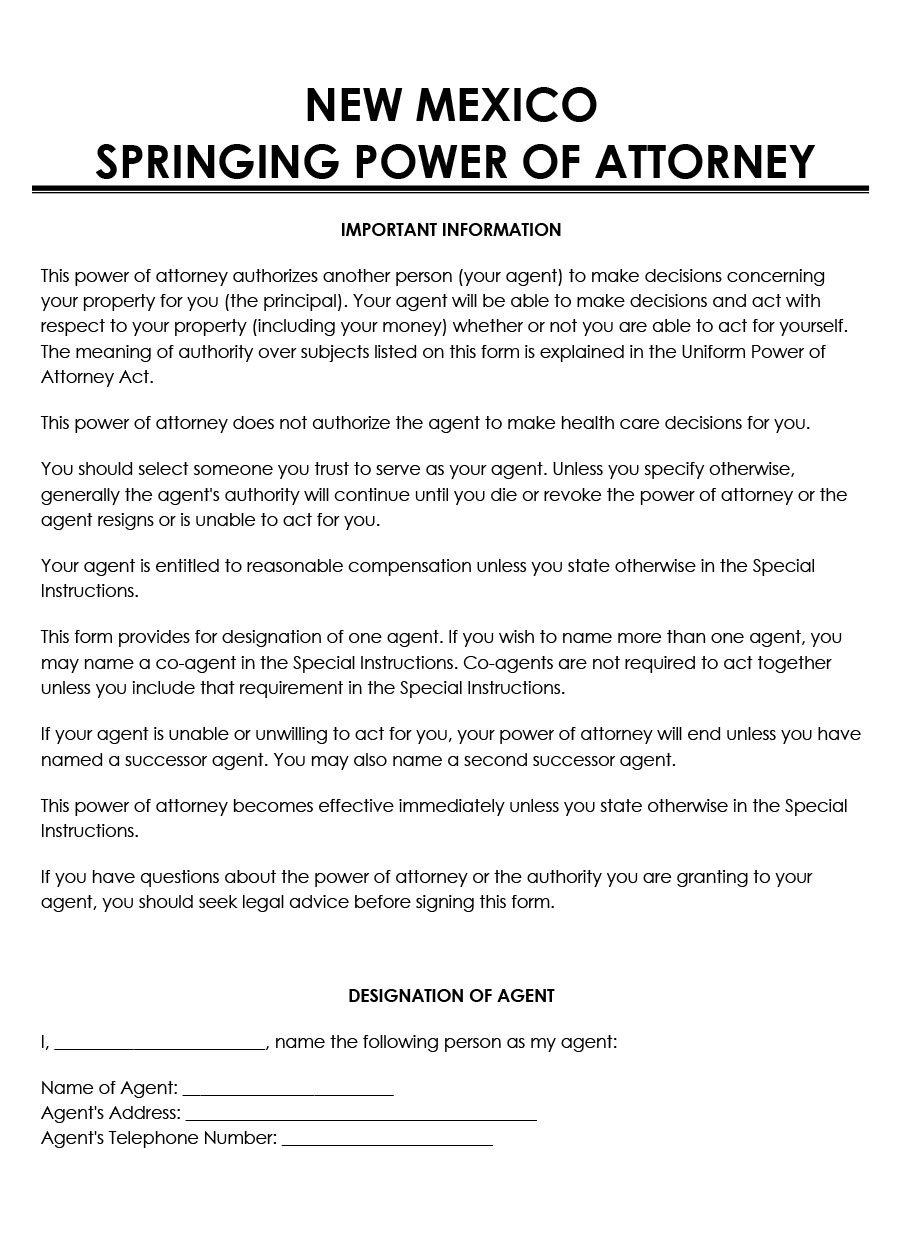
Springing Power of Attorney Form
Download: Microsoft Word (.docx)
Governing Laws
Laws concerning POA vary according to state. The governing laws for it include:
- Statutes: Uniform Power of Attorney Act (§ 45-5B-101 — 45-5B-403)
- Specific powers, life-prolonging acts: The agent has the authority granted by the POA health care to make decisions concerning the principal’s health. These decisions include choosing and relieving health care providers, approval of diagnostic tests, surgical procedures, and instructions to provide, withhold or withdraw artificial nutrition and hydration and any other form of treatment that affect the principal’s mental or physical condition.
Legal requirements for DPOA in New Mexico
Following are the legal requirements of durable POA in New Mexico:
- The agent must be an adult. In the case where they are minors, they must be independent and free to make decisions on their own.
- The agreement must be put in writing and signed by the principal.
- It becomes effective as soon as it is confirmed the principal is incapacitated.
Revocation of durable power of attorney
- The agreement may be revoked in writing by a person authorized by the POA.
- The writing must inform the health care provider of intentions to revoke.
- If the agent is a spouse of the principal, divorce or legal separation revokes the POA of the spouse as an agent. The agreement can be revived if they remarry.
- It can be revoked if the POA does not correspond with an earlier health care directive.
Validity from state-to-state
- The POA is effective only if it is in line with the Uniform Health Care Decisions Act directives. This is required regardless of where the POA was signed and executed.
If a physician unwilling to follow durable power of attorney
- If the health care provider does not agree to comply with health care directives, they must inform the patient or agent. They must continue to care for the patient until another care provider is assigned.
- The health care provider must make efforts and help find another health care provider who agrees to do the job.
Immunity for attending physician
If the health care provider complies with the generally accepted health care policies, they are immune to sanctions for any unprofessional conduct.
- Authority: (N. M. S. A. 1978, § 45-5B-201). An agent may act on behalf of the principal and exercise the authority granted by the document.
- Signing requirements: (N. M. S. A. 1978, § 45-5B-105) – Notary Public.
It must be signed by the principal, and a legal witness must be present for this. The agent is also required to sign, but it must not be done before a notary public. However, in the case of Agent Certification, a notary public is required (§ 45-5B-105, § 45-5B-302). - Statutory form: There is a legal POA form provided by the New Mexico state legislature at § 45-5B-301.
New Mexico Power of Attorney Requirements
According to the New Mexico state laws, it must have the following requirements to make it valid:
- The principal is the person who relays a POA to the agent. So the principal’s name and contact information should be mentioned in it.
- The agent’s name and contact information concern the person to whom power has been given to act on behalf of the principal.
- Authority granted to the agent: These are the jurisdictions of the agent, i.e., the decisions the agent can make on behalf of the principal using the POA form.
- Reason for power of attorney: These are reasons why the principal is conveying powers to an agent. It could be because the principal is incapacitated or unavailable. It permits the agent to make decisions for the principal.
- The period of POA is the period that a POA lasts. It refers to when it becomes effective too when invalidated.
- Principal’s signature: The principal must sign the document to validate it. Without the principal’s signature, the agent cannot use the document.
In New Mexico, it is not compulsory to acknowledge a notary public in your POA document, but it is advisable. A notary public can be helpful when there is legal disagreement because the signature of a notary officer will be considered genuine.
How to Get Power of Attorney in New Mexico?
To get it, you have to comply with the prerequisites of New Mexico law. For a POA to be effective, it must be in writing and willingly signed by the principal. To become principal, you must be at least 18 years old, and to convey powers concerning health decisions, you must follow the requirements of the Health Care Directive.
Before appointing an agent, talk first to the person you want to assign to handle your affairs about the benefits of a power of attorney. Make the person understand why you need their assistance in using the benefits such as making bank transactions, paying bills, and attending to other daily needs. Ensure that they agree with you and are willing to sign the form appropriately.
Next, find a valid form in New Mexico. There are laws concerning approved POA forms, set in the New Mexico Code, Chapter 46B, Section 1-301. You can also get the form online from legal document providers. Finally, complete the form by filling in the required information stated above.
The form usually outlines eight specific powers granted to you by a POA unless the document states otherwise. An example of such is assigning powers granted by it to another person. After you get the attorney of power, you can proceed to notarize the signature of the principal.
Conclusion
A principal has a key role to play in every power of attorney agreement. They are the one who get to pick the agent and delegate power to them. The powers must be clearly outlined in the document. It is advisable that the signing of the documents is done before a notary public, and records should be properly documented for reference. The principal should also be sure to pick someone they trust to act always in good faith.












